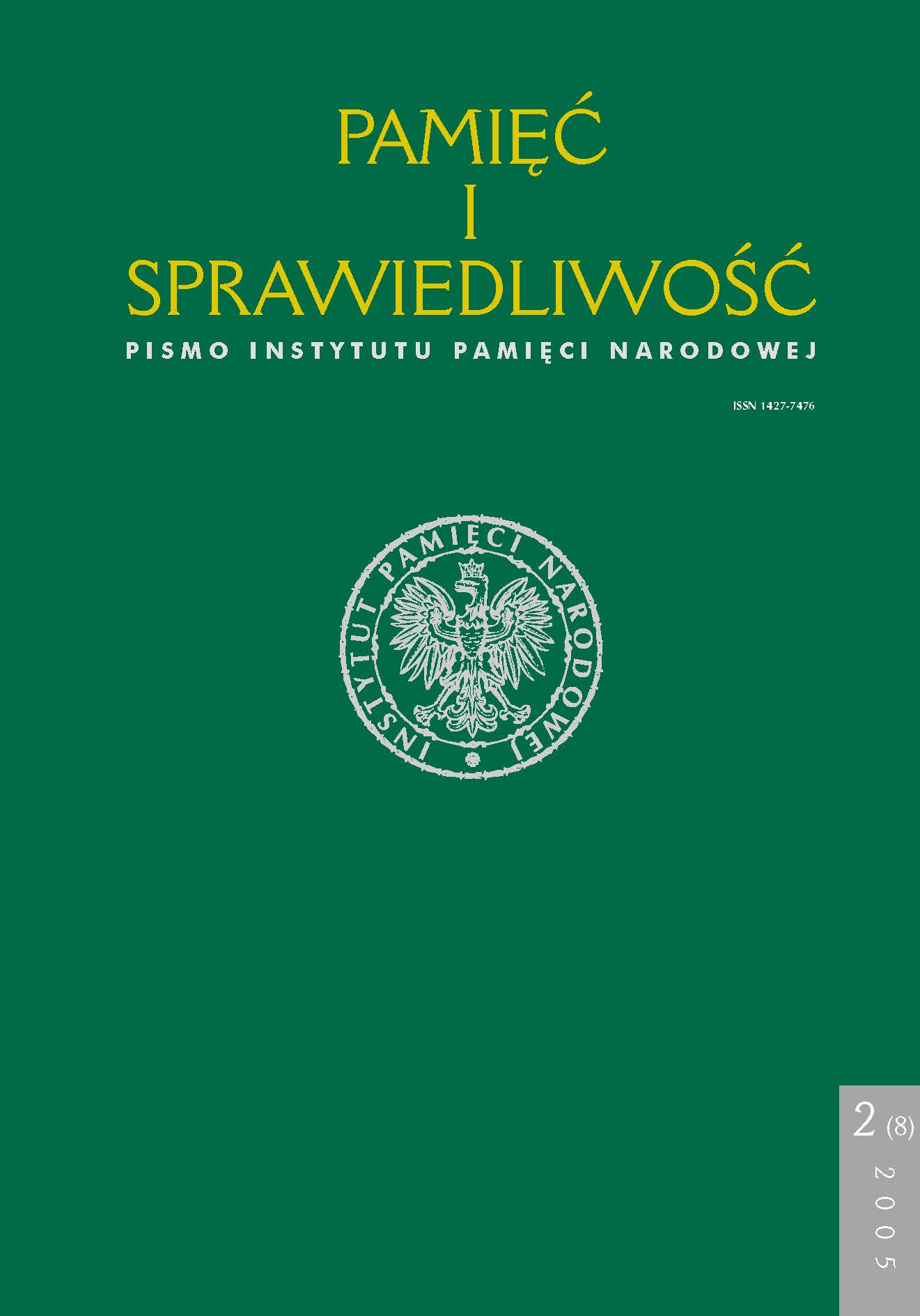Na drodze do stworzenia PKWN – rola Moskwy
Pamięć i Sprawiedliwość, Том 8 № 2 (2005), pages: 31-49
Publication date: 2005-12-30
Аннотация
The way the new authorities were established between 1944 and 1945 is one of the key issues for the historiography of the Central-East European states. Firstly, because for the next forty years after the war had finished the events were mythicized. Secondly, sometimes the problem’s depiction remains under the influence of current political conditions although since the victory of democracy the standard of objectivism has much increased.
Hence, it seems important to bring new sources into scientific circulation, mainly those from the Soviet archives, for the reason that some aspects of introducing political power in the discussed countries derived from the Soviet foreign policy.
Goals of the USSR’s activity in the region have been a subject matter of constant, even boisterous, discussions amongst the Russian academic community for the last 15 years. Some of the researchers take the view that the ideology of spreading Socialism beyond the USSR borders was the keystone of Russian activity. The others claim that the strategic goal of the soviet authorities was protection of the political security of the state and during Stalin’s reign – protection of his personal power, which was identified with the stability of the regime.
Poland had a specific position in the system of priorities of the USSR foreign policy towards Western Europe. Stalin wanted to transform it into a strong, ethnically unified and friendly (in his understanding) state – a partner (of the USSR) to secure both countries after the Second World War. To guarantee this, anti-Soviet activists and radical rightists had to be removed from power in Poland. To serve this purpose the Polish Committee of National Liberation (PKWN) was created in Moscow and a manifesto (which on the reverse has notes handwritten by Stalin) was prepared. The communist propaganda for the following forty years assured Polish society that it happened in Poland. The creation of PKWN secured
cooperation between the Red Army command and Polish civil administration recognized by Moscow. Moreover it avoided the need for a direct occupying governing body. Thus Stalin had an advantage in the future fight for this type of political system and its maintenance in Poland and on the international arena. In addition, he achieved it all in defiance of intentions and plans of the Allies, who were confronted with an accomplished fact. After the PKWN was created Stalin was given an extra argument in discussing “the Polish issue” with the Allies.
Наиболее читаемые статьи этого автора (авторов)
- Aleksandr Gogun, Anatolij Kentij, Grzegorz Motyka, Anna Madej, [Recenzja] Grzegorz Motyka, Ukraińska partyzantka 1942–1960. Działalność Organizacji Ukraińskich Nacjonalistów i Ukraińskiej Powstańczej Armii, Rytm, Warszawa 2006, ss. 720 , Pamięć i Sprawiedliwość: Том 12 № 1 (2008)
- Albina Noskowa, [Recenzje] Nacjonaliści ukraińscy lat czterdziestych XX w. O co i przeciw komu walczyli? Dlaczego ponieśli porażkę? (Na podstawie nowego rosyjskiego wydania dokumentów) , Pamięć i Sprawiedliwość: Том 22 № 2 (2013)
- Padraic Kenney, Anna Madej, Kiedy znikną białe plamy. Spojrzenie na współczesną historiografię Polski , Pamięć i Sprawiedliwość: Том 12 № 1 (2008)
 Język Polski
Język Polski
 English
English
 Deutsch
Deutsch
 Français (France)
Français (France)
 Italiano
Italiano
 Русский
Русский


 PDF (Język Polski)
PDF (Język Polski)
